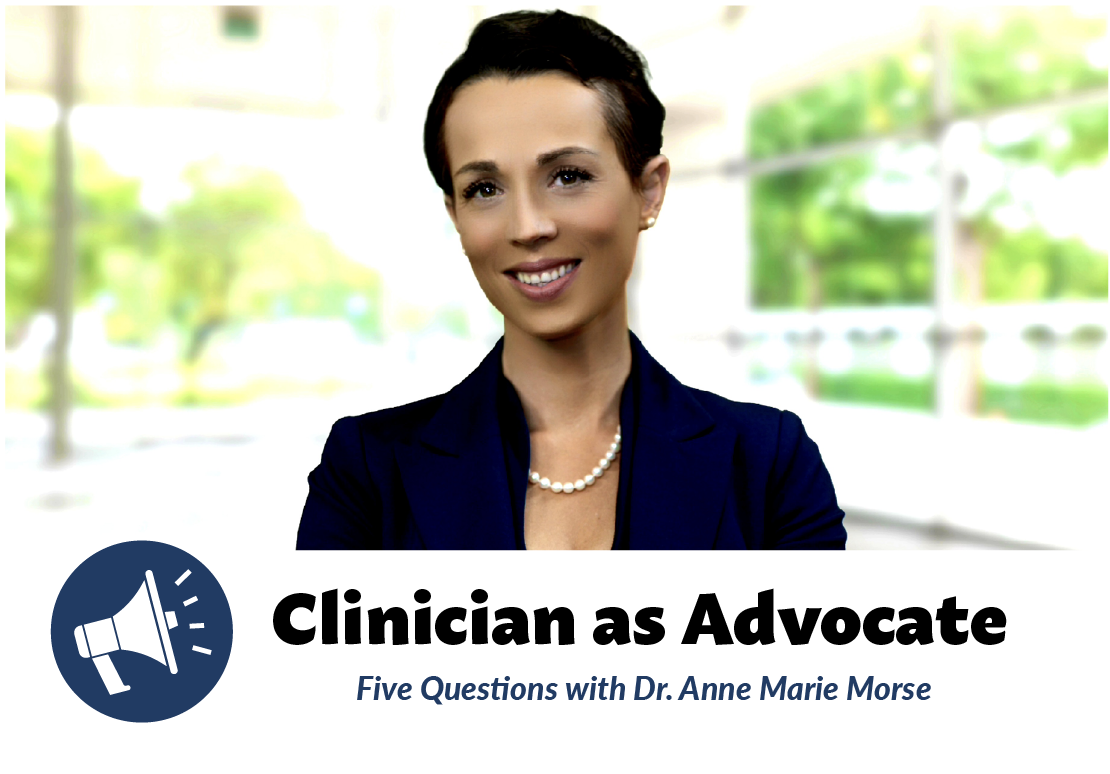Dr. Anne Marie Morse is the Director of Child Neurology and Pediatric Sleep Medicine at Geisinger Janet Weis Children’s Hospital. She is a board-certified neurologist specializing in child neurology and sleep medicine and works with both children and adults, with a focus on central disorders of hypersomnolence (CDH).
What led you to work in sleep medicine?
I really did not have sleep on my radar. During my child neurology training, I noticed that almost all of the neurology patients also had a sleep problem. My hypothesis at the time was not that it was a comorbidity but that it was a shared substrate. It seemed to me like there was the opportunity to use sleep as a tool for healing the full person.
I’ve always thought it’s astounding that we don’t ask questions about how people sleep, whether it’s a well individual or someone who has an illness. There is an opportunity to really look at sleep from the capacity of how you can use it as a tool in diagnosis, management, and prognosis.
What advocacy work do you do?
The role of advocacy is something that I’ve had as part of my vision since I was a resident. I try to participate in advocacy with every opportunity that comes. If there’s a request from a local newspaper or television station, I’m there. I participate through partnerships with different advocacy groups, either as an advisor or volunteer in some capacity; that extends to everything from the American Academy of Sleep Medicine to different specialty organizations.
I also have advocacy within my own community. I find it important to meet individuals where they’re at. I developed a program called “Wake Up and Learn” where we go into school districts and provide scheduled sleep screening and education. It has been an incredible tool for sleep health advocacy, and we’ve gotten a lot of really great feedback from students, families, and school staff.
I also advocate through social media. There are so many physicians who tend to scold patients for using the internet and social media as their means of information gathering. I strongly disagree; instead, we need to be part of where they’re looking for information and empower individuals to have an active role in their own education and wellness journey. Not only has it been an opportunity for me to advocate and educate others, but I have also been humbled by how much I’ve learned about the challenges and opportunities that exist that I never would have thought of previously.
How are you using social media to reach people?
I’m on several different platforms including LinkedIn, Twitter, Instagram, and TikTok. The main one I use is TikTok because I can make quick videos, edit them easily, and share them to other platforms. I find that the level of engagement on TikTok tends to be a lot higher than in some of these other areas. When people start responding, it greatly informs what’s going on.
As an example, I posted a video for middle school and high school students asking “are you getting enough sleep and if not, why not?” There were over 50,000 views and 700 responses, many of them saying they have lots of homework, extracurricular commitments, long bus rides. There are some innate things that we need to learn.
These are the conversations that are so exciting and informative. When you come into the public realm and get that engagement, it allows people to feel involved in the change that they’re experiencing.
Why is advocacy important to you?
Advocacy is critically important because in medicine we have this false belief that as the clinicians, we are the ones who matter and the reality is we aren’t. We are the ones who are educated in the specific disease states, the risks and benefits, but our role is to be the guide on the side. We need to empower the person who is on that medical journey, whether it’s with wellness or a battle with chronic illness.
Advocacy allows us to get the patient voice out there. It allows patients to be behind the steering wheel in being allowed to drive things. It allows us the opportunity to learn from the mistakes we’ve made in healthcare.
What are you excited about?
Everything! I am most excited about the different opportunities that I have been afforded to work with so many incredible people. I am constantly humbled by the emails, messages, and phone calls I get, whether it’s people saying “thank you, this has been helpful” or my patients saying their life has been changed.
I’m also excited about being a part of something bigger. I feel that this year is going to be a huge, transformative year. For me, having an increased opportunity to be on a larger stage and reach more people and be part of the bigger evolution on where sleep can go, that is super exciting. Being able to be part of elevating the patient voice, I’m so appreciative and humbled by that opportunity.



